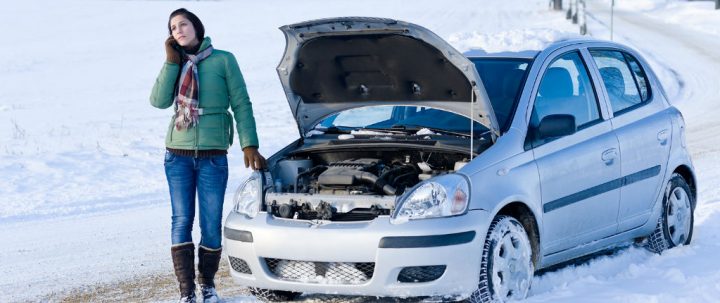In 2020, over 18,000 accidents were reported across the UK where rain, snow, fog, or high winds were a contributing factor.
More severe road traffic accidents are happening in winter due to motorists being unprepared for driving in winter weather and ignoring weather warnings, and IAM RoadSmart believes now is the time to remind drivers how to drive safely when the temperature drops, and the daylight hours get shorter.

Driving in winter can be difficult, and fog frequently makes the dark mornings and evenings more dangerous. It is important to know exactly how to adapt your driving behaviour to suit the weather conditions at the time.
Prepare a winter kit for your car
It’s worth packing a few essential items in your car’s boot to make sure you’re ready in case of getting stuck in cold and wintry weather. If you were to breakdown then it’s best to be prepared as possible:
Ice scrapper and de-icer
There’s nothing more frustrating than rushing to get out in the morning (or the evening) and your front and back windscreens are iced over. Instead of having to use a credit card, having an ice scraper and de-icer in the car will save you lots of time.
If you are tempted to clear the windscreen with water, not too hot otherwise you’ll be dealing with a cracked windscreen rather than a frosted or icy one if it finds its way into an imperfection.
Remember that if you don’t clear your car windscreen fully and then includes inside misting, you won’t be able to see properly. So, leave extra time too, to ensure you have full visibility!
Or if you are lucky enough to have the facility pre-condition your car for your departure time, the screen will be clear and the interior ready for you just to jump in and drive off.
Torch, warm clothes, blankets, and high visibility jacket
With less daylight hours in winter, it can get dark quite quickly in the evenings so a hi vis jacket or vest and a torch will mean you won’t be missed by other drivers. Another useful item to keep you warm and comfortable if you get stuck in cold weather is blanket and warm clothes, you never know when you’ll need them.
First aid kit
It’s always a good idea to keep a first aid kit in your car. Items such as sterile wipes, plasters, dressings, and scissors to treat minor wounds might come in handy.
Jump leads
Car batteries are one of the most common reasons drivers may find themselves stranded in the winter months. Jump leads are useful to have in the boot of your car in case you need them to kickstart your battery.
Reflective warning triangle
It can be put on the side of the road by anyone to warn other drivers of a breakdown or crash ahead, but remember not on the motorway
In-car phone charger
If your car has a USB charger then keep a mobile charger lead in the car so you can charge your phone as you go. If your car doesn’t have a USB then there are lots of gadgets on the market that will do the same usually using the cigarette lighter as the charging point. Don’t forget to take your phone in the first place and it’s also a good idea to take a plug too as if you have to stay overnight you can charge the phone in a hotel or restaurant before restarting or completing your journey.
Food and drink
Non-perishable foods, such as crisps, biscuits and dried fruits are a good choice and easy to store in your vehicle. Some bottled water will also stand you in good stead if you find yourself stranded or in unexpected standstill traffic.


